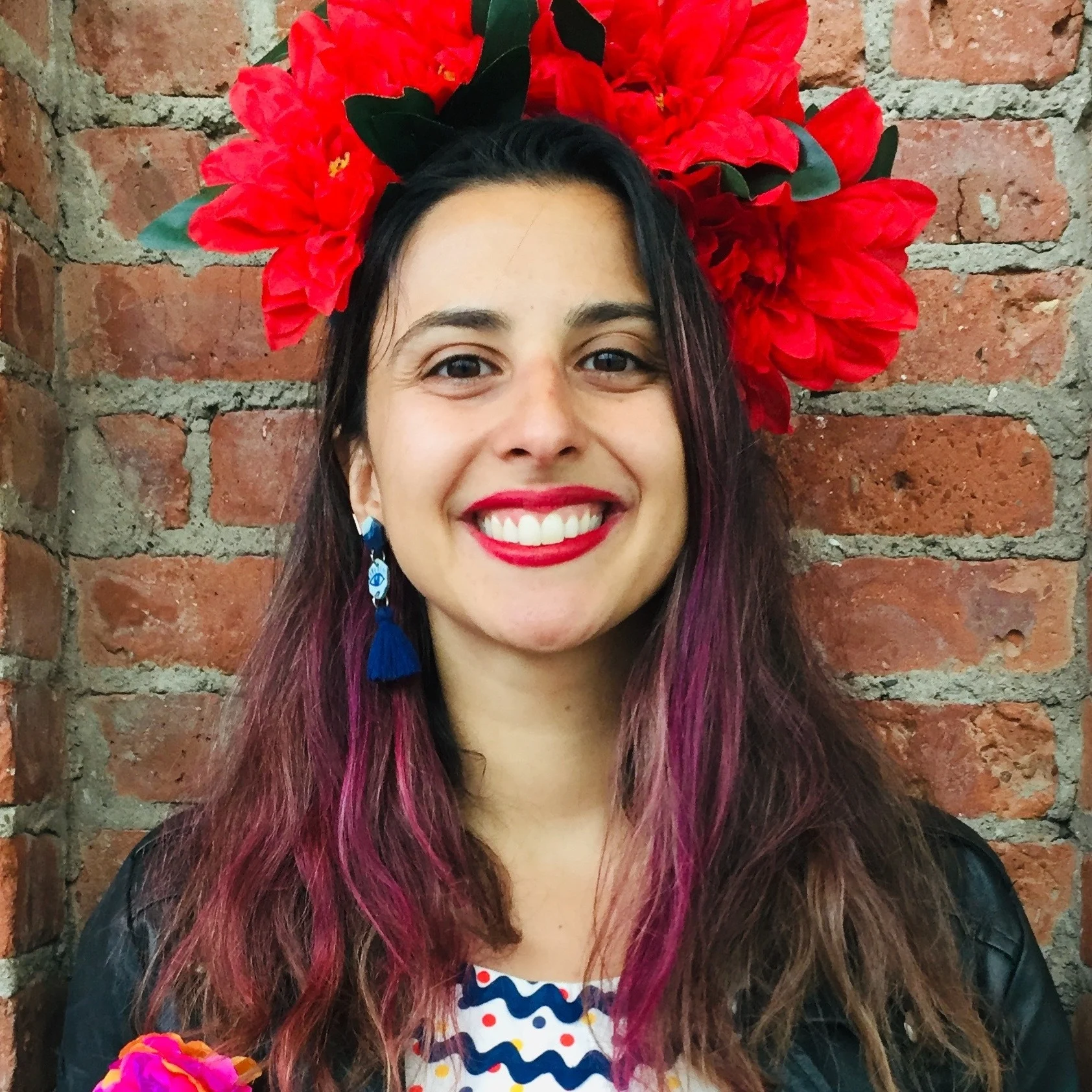How starting a creative small business fit my ADHD and dyscalculia

Stay in the know
All our latest podcasts delivered right to your inbox.
When you have ADHD and dyscalculia, you need lots of tricks for keeping up while running a business. Taking advantage of her smartphone is just one of the tricks Lindsay Miguelez uses. Like so many of us, when Lindsay was growing up, she was told that she wouldn’t always have a calculator in her pocket to help with math. Thank goodness that was wrong!
It took seven years of struggling in college for Lindsay to decide to focus on wedding photography. Today, she’s in demand for her whimsical, romantic style. Of course, she still faces doubt and fear of failure. But she knows that sometimes you just have to say yes and figure things out later.
This week on How’d You Get That Job?!, explore how you can take a passion and turn it into a career. Hear about Lindsay’s journey, and get her tips for starting a small creative business.
Related resources
Episode transcript
Lindsay: Maybe because I grew up performing, I love that, you know, we have a start time and it's go, go, go. And things have to keep moving. You can't pause. You've got to keep going. When I was tested years ago for my learning disabilities, they actually found that I had a super high processing speed. Um, and so I feel like because of that, I just love, I love the fast pace. I just love the go, go, go.
Eleni: From the Understood Podcast Network, this is "How'd You Get THAT Job?!," a podcast that explores the unique and often unexpected career paths of people with learning and thinking differences. My name is Eleni Matheou, and I'm a user researcher here at Understood. That means I spend a lot of time thinking about how we find jobs we love that reflect how we learn and who we are. I'll be your host.
Have you ever thought about running your own small business or making a passion into a career? Our next guest, Lindsay Miguelez, turned her love of photography into a thriving business as a wedding photographer. But it wasn't easy. Lindsay has ADHD, executive functioning challenges, and a math learning difference called dyscalculia. In this episode, we're going to talk to her about her learning differences and how she got her small business going. Welcome to the show, Lindsay.
Lindsay: Hi.
Eleni: So, Lindsay, I know that you're a wedding photographer. What is your favorite thing about your job?
Lindsay: Well, there's a ton of things. I think just having the freedom to make my own rules. I like to say that a lot. I mean, obviously I'm serving my clients. I have my couples that I love dearly, and I'm providing a service for them, but just really being able to take my business in directions that I want it to go in, that I know that I have, you know, where my strengths are and where my weaknesses are, and where, you know, I, when I started my business, there were things that I tried to do that I just came to the realization that just were not going to work out and weren't benefiting me. So just being able to take my business in the direction that I want it to, and just not having someone make rules for me and telling me, you know, what to do.
Eleni: Yeah, definitely. Is entrepreneurship something that you were always interested in?
Lindsay: Actually, no. Um, my dad's an entrepreneur, but I just never, ever thought of that. I was gung-ho on going to college, and I was getting a history degree. I just kept my creative, you know, things like photography and dance, um, just things that I was going to keep as a hobby, and I never thought that that would ever amount to any sort of career.
So I was very focused on school, which at the same time was doing horrible in and having the most troubles, but it wasn't till I made the decision to stop going to college that I was going to pursue what I really wanted in life, what I was passionate about. And, you know, I wanted to always, I knew since I was little, that I was not meant for a typical nine-to-five job. I knew that I wanted to do something that I truly loved. I felt like I looked around at people who got their, you know, had their careers, but they just complained about their jobs all the time and they hated it. And I've never been the kind of person that looks at something just for money that, "OK, I'm going to do this because of the money." I want to do something that I love.
So it was really, until I made that decision seven years ago to start my business, that I was like, "OK, I'm an entrepreneur. I'm going to, you know, run my own business." And that was very foreign to me. I'd never done that before. So that was definitely a learning process. Figuring out how to do that.
Eleni: Definitely. You mentioned that you always knew a nine-to-five wasn't necessarily for you. And one of the things that you love about entrepreneurship is this idea of being able to do what you want and, um, you know, not necessarily have to answer to other people. I would love for you to talk about how that might relate to your differences, and, you know, we haven't really talked about what your differences are. So if you could like introduce what some of your differences are and, you know, if you've thought about how that might connect.
Lindsay: Yeah, definitely. Um, so in the fourth grade, I was officially diagnosed with attention-deficit disorder. I was able to easily fall through the cracks because I wasn't necessarily hyper. I was very shy and quiet, so, but my grades reflected poorly on me. So it took a little bit for, um, teachers to take notice. So my mom got me into testing, and the diagnosis was attention deficit.
As I progressed through school, and doing more testing here and there, it came out that I had dyscalculia, which is math dyslexia, which I realized was probably the biggest issue that I had in school and just with my learning differences. And just overall, I am a very visual, hands-on person, and I need to teach myself. So, um, having teachers teach me in a certain way, I wasn't able to comprehend. I wasn't able to do as well as the other students, and I really, really struggled. So I think that having my own business, I've done away with that person telling me how I need to learn this.
I mean, even with my camera, when I started my photography business, I wasn't an expert with my camera. I still didn't understand how aperture worked. But it was easier because I could teach myself in a way that I knew I was going to learn. And I can learn from mistakes, which is really how I learn. I, once I make the mistake, I will never, ever make it again, but I have to make that mistake first.
Eleni: I think it's interesting to think about, you know, you mentioned teaching yourself photography and then having to learn a lot about running your own business, um, and doing that in the style that works for you. And also setting a business up in a way that plays to your strengths. You mentioned strengths as well, earlier, so, I would love to hear like what some of those lessons were, like what were some of the things that you needed to learn about running your own business?
Lindsay: Yeah. Oh my gosh, there is a ton, but just having a creative small business, really learning how to put yourself out there. And there's so much fear that comes with that. I thought, you know, what, what are people going to think about me and this baby business? You know, I know I'm not that good yet, and I'm just learning, but I had to put myself out there.
Um, so there was a big lesson that I needed to learn in just saying yes, just doing it, just going for it. I always think of the Tina Fey quote. She's like, "Just say yes and figure it out later." And that's what I kept telling myself, 'cause I would get an inquiry for a wedding, and I had not done a wedding myself and I was super, super scared, and I just, I didn't feel confident.
And I just thought, you know, of all the bad things that could happen, what if I mess up? But I just said, "You know what, we're going to book this. I'm going to prepare myself as much as I can. And then of course, you know, that first wedding, I learned a ton just about how the day works, you know, different lighting situations with my camera and everything. So there was a lot of fear I needed to put aside and just put it in the back of my head and just really go for it. And I find myself doing that even today, even though I have a well-established business and I have people willing to hire me and loving my work. There are still things that happen that I do get scared. And I think, "What is this person going to think? Or what if I fail? What if I don't do a good job?" And I had to keep reminding myself, "We're just going to say yes. And we're going to think about it later. We're just going to do it." I mean, even this podcast, I was super nervous, but I'm just like, "We're just going to do it. I know it's going to, it's going to be fine."
Eleni: I really enjoyed the way that you phrased that, because I think a lot of people, when they think about like starting anything new, can feel like a really daunting thing, but it's really humbling to think about, well, no one really knows what they're doing until they try. And, um, you know, all of the learnings are so unique to, I'm sure, like your own unique business in your own unique situation. So I'm sure that you're learning, like, you know, what you need to learn for yourself personally, and that may or may not relate to, um, to everyone.
So you mentioned ADHD and dyscalculia. Are there any challenges that come up that are related to running a small business, and those differences?
Lindsay: Yes, definitely. It's definitely difficult with attention deficit when I have a lot of administrative work. And since I am the sole runner of my business, I do everything. Absolutely everything — emails, accounting, the contracts, paperwork, and also, you know, going out in the field and, and shooting and working with clients. And that I have a very easy time doing. When I am hands-on, when I'm with people, I am completely on, completely focused, and I'm loving every second of it. I can just feel that it's, you know, what I'm meant to do, and this — or just being in person with people and photographing a wedding day, I get a high from it. But when I'm in my office having to edit the thousands and thousands of photos, I — of course, I do love editing because that's the next half of the creative process and producing the images, but it gets hard, being distracted with a house, you know; I have pets, I have laundry, I have things to do.
And so, working for yourself, you also need to have self-discipline. And so, sometimes I do wish I had someone who was kind of telling me what to do, even though I love that I don't have anyone in this business telling me what to do. But sometimes I feel like I need somebody to kind of keep me on track because it can just be very overwhelming.
I just say my ADD is flaring when I can't concentrate, and I try to do all I can to, you know, to get things done in the time that they need to be done. Um, as far as the dyscalculia, that involves numbers. I always say numbers don't mean anything to me. They don't have any value. And I, I have never understood them. And so obviously, my job doesn't revolve around any math or any computing or anything, but simple things like my prices, like, or the amount someone owes me, I always need to have that written down somewhere because I cannot just pull that from memory. It's even hard for me to remember relatives' ages or birthdays, because it's, it's a number. It doesn't really mean anything to me. So I definitely have difficulty that I, you know, I try to hide when someone's like, "Oh, what's the price of this?" And I just, I just have to make sure, because I know in my brain the numbers are going to get jumbled.
Eleni: Yeah. Well, firstly, in terms of what you talked about around, you know, a small business requiring a lot of like time management and organization, we know that, you know, there are like some executive functioning challenges that come with ADHD that relate to organization and time management. So what do you do to cope with that like when your ADHD is flaring?
Lindsay: Yes. I definitely have, that's one of the things that I was diagnosed with, like executive dysfunction or I'm not sure exactly the name, but the, I remember in school, they were like, you know, it has to do with note-taking and getting homework in on time and things like that. And that was definitely something that I always had an issue with.
So now I utilize my phone, my reminders, my calendar — you know, I know when I need to even remind myself to put an alarm on my phone to start getting ready. But I definitely had trouble in the past when I was first starting in, in that time management and you know, how much time I needed to get from one destination to the other, how much time I needed to really get ready. But now, doing this for many years and having the same types of sessions and the same types of weddings, I utilize my phone and alarms and my calendar to really help me, you know, keep track of time because time is, uh, is another big thing with dyscalculia that's really hard for me to grasp. I always think it takes a lot less time than it does. So in order for me, you know, not to be late, I make sure that I kind of lie to myself and tell myself, you know, if the wedding starts at two, it actually starts at 1:30, and that's the time, you know, I give myself a false time to start and act like that's the starting time. And that way I can ensure that, you know, I will get there on time and I have all my ducks in a row.
Eleni: Yeah. I think it's really great to normalize, even though you have a job that requires like some of the things that you struggle with, like the time management organization, you have ways to manage that day to day and that it's still totally possible to like get those things done.
We haven't talked too much about dyscalculia on the show, so, um, I think it's really interesting to hear like the way that you describe it around, you know, not necessarily having like a concept of numbers or like being able to understand what they are. And, you know, one of the ways that it comes up is, um, pricing. Do you ever get like any support around, you know, those types of challenges, like either from other people? Are there like coping mechanisms?
Lindsay: I think mostly, I mean, the people that really understand how I am with numbers is my mother and my husband. So they are, as far as outsiders, it's very easy for me to just keep these things to myself. I don't want to say it's not a common thing, but you don't usually hear "dyscalculia." A lot of people hear that word and they've never heard it before. They've heard of dyslexia. So I just say, you know, it's kind of like math dyslexia.
But you know, as far as in my industry, it's easy to kind of hide those things and something that I felt like I've hid my entire life. I've just known that I've got to pull out my calculator for something, or I have to look at it written down. I'm not going to — if it has anything to do with numbers, I'm just not going to remember. But thankfully in my line of work, I get inquiries, you know, via email. Nothing's ever in person. So I'm able to send pricing and send it already written out, which is good. And then, you know what I have like timeline calls with couples and everything. I make sure I have all the papers out and I see, you know, how many hours they hired me for and how their timeline looks.
But a lot of times going through timelines, either creating them or viewing them from planners, sometimes it's hard, too, because it's all different parts of time, and I have to kind of calculate, OK, how much time do I need to do, to do this? Or, you know, what time do they want me to arrive versus, you know, leaving?
Um, and a lot of times it's over the phone, and I'm just kind of trying to do the math, you know, to the side really quickly, but sometimes I do get a little anxious and like flustered, um, because I just know that I just can't do mental math easy in my head and quick like other people. And I'm sure no one looking at me is realizing what's going on in my brain and realizing that I'm having a difficulty, um, but, you know, it's just, it's always going to be an insecurity for me. But I'm just glad that phones have calculators and we can have calculators in our pocket all the time, unlike what teachers said in grade school, so.
Eleni: Exactly. Yeah, you mentioned, you know, working with couples, obviously that's a really big part of wedding planning, um, and wedding photography. Do you want to talk a little bit about what you like and maybe even what you don't like about working with people?
Lindsay: Hm. So, I am an introvert, and I a lot of times like to be alone, but there, um, so you would think that I didn't like working with people. But I think the big crowds of a wedding day, sometimes it can be frustrating with guests because they don't know me; I don't know them. And you're trying to kind of herd masses of people to do certain things. Or you have someone who's like in your shot or walking down the aisle in the middle of the ceremony and, those little things can get annoying and frustrating. And I know it's that way for a lot of people in my industry. Um, but as far as the couples that I get to work with, it has been such a — something I didn't realize that I would love and really cherish the fact that I get to know these people and we become friends or good acquaintances, and they hire me throughout their life and they grow their family and have babies and I get to keep up with them. And it's just, I feel like I have all these friends and, it's just really been, been great to, you know, get to know them and just follow their journey. And it's just, it's really awesome.
Eleni: I know that you mentioned early in the conversation that it also gives you an opportunity to be really creative. And, you know, I imagine that a lot of couples have like a very clear vision of, you know, what they would like and what they would want their photographs to look like. Um, how do you help like bring that vision to life and make them feel really special?
Lindsay: Yeah, so I really try hard with my consistency to produce the same quality of work and the same style, because there's a lot of different styles in wedding photography these days. I'm very, very up-front with my style, so I make sure that when someone wants to hire me that they do love my style and they like what I produce and they want the same thing. They really trust me with the creativity and to produce, you know, what they're looking for.
Eleni: How would you describe your style?
Lindsay: My style is light and airy. I like it very crisp and clean. Actual film photography is still a thing. A lot of people are surprised about that. I still shoot digital, but the look of film photography is, is gorgeous to me, but in weddings, I need to see what I've shot. I need to shoot digital. I'm not ready to make the jump to film, but I try to emulate, um, that style, that, you know, just kind of whimsical, romantic style so when, so that when my couples look back at their day, you know, all they feel is obviously happiness from the memories, but I want the photos to portray that as well.
Eleni: Can you talk a little bit more about what you enjoy in — on the day of the wedding? I'm sure that a lot of people have misconceptions about what a wedding photographer does. Do you want to talk a little bit about what it looks like on the day?
Lindsay: Yeah. Yeah. I look at it as just like a big production, maybe 'cause I grew up performing. And so I love that, you know, we have a start time and it's go, go, go. And you know, things have to keep moving. You can't pause. You've got to keep going. When I was tested years ago for my learning disabilities, they actually found that I had a super high processing speed. Um, and so I feel like because of that, I just love, I love the fast pace. I just love the go, go, go. And then I love seeing my couples just relax once they hit the reception, because the ceremony is over and, you know, being in front of the crowd is over, and they're just, they're ready to party and they're ready to have fun. And it's just awesome watching them experience the best day of their lives.
Eleni: Aw, that's so sweet. I also love that you really love the fast-paced nature, and that really relates back to, you know, the way that your brain works and your differences, in terms of having a high processing speed. So I love how that all like tied together. Last time we spoke, you said that you were in college for seven years. Why do you think that it took you so long to come to that realization?
Lindsay: Yeah, I think about this a lot that, you know, "Oh, if only I had started my business earlier" and "I should have started it earlier." I think that I just never saw a way to do it. I never saw any examples until I was seven years in. My now-husband and I, we had just moved in together. We were dating and — but we were reaching that age where a lot of people were getting married. And so I started seeing other people, you know, posting their engagement photos. So when I decided, hey, I love photography. I see these people running their own businesses, working for themselves full time, being able to do photography, but they're doing it with weddings and portraits. So I got a job at a portrait studio in the mall thinking, you know, "They will teach me how to do this." And, so I did, and they, you know, kind of taught me how to pose, and I learned more about the camera. I only stayed there a couple of months 'cause I thought, "OK, I'm learning enough. Like I want to get this thing going. I have my name picked out. Like, I'm just gonna — I'm just going to go and do this and give it a try." And I did a lot of, you know, free shoots for people. I just contacted everyone and anyone I knew who was a couple or a senior or families to say, "Hey, like, let me take pictures of you. It'll be no charge. You'll get the photos. But I just need to build my portfolio, and I really need to practice."
Eleni: That's great. You know, I think for a lot of people there's a lot of pressure, like societal pressure, family pressure, to go down the college route. And it's interesting for you like one of the main blockers really was that you didn't have role models for like people that were doing something different. It wasn't until you saw that in practice that you were able to envision it for yourself. And, you know, we hear about a lot of people that have like a passion or hobby but they didn't believe they can make it into a career. So it's really interesting to hear how you made that happen for yourself, even though it took you a while, you still got there in the end, and it sounds like you've found something that's really compatible with your differences and with your strengths, too, which is really great. Looking back, is there anything that you wish you had known sooner, um, as you were like struggling through school and college?
Lindsay: The main thing I was always worried about in college was that, you know, was I going to be successful or not? And that to me in terms was not with money or anything, it just was, you know, doing good in my career but also working a job that I loved. And I really have always had a passion for history, so I knew if I got a job, you know, I would enjoy it. Um, but with college and the way my grades were reflected and how I, you know — all the struggles that I had already faced and that I knew lied ahead in order for me to get my degree, I just, it, it leaves you very insecure. It leaves you feeling like you aren't going to be successful. You're never — you're not going to make it. You're not going to, you know, be the person that you want to be. And it took me at a very, very low point in my college career to decide to quit. And that was my first, that was what I first did; I first quit. I didn't even think of photography. Like I just said, "I have got to stop."
I always wanted to be the person to, you know, fall seven times and get up eight, and just keep going, keep going, keep pushing through it. But it breaks you down the more that you fail, and breaks you down mentally. And so my first decision was to stop. And I even thought, "Maybe I'll go back next semester, but I just think that I need to stop." And so I knew I had to do something else. And so, you know, a lot of times when that's, when it feels like this is your only option, you just go for it and you don't look back or look around or anything. You just look forward.
Eleni: Yeah. Do you have any advice to people who might want to start a small business based on a passion or hobby?
Lindsay: Yeah. I would say, you know, any of those fears that creep up — because they will creep up; I think you're crazy if you don't have any fears — to put them aside and, and literally say yes and figure it out later. When you get any, take any and all opportunities that you can take. And I always tell people, you know, "If you quit, that's the only way you're going to fail is if you quit." If you continue to go, you cannot possibly fail. I think of the artist Lizzo. She said that at one point like she was working for like Liberty Tax and dressing up as the Statue of Liberty even, she was still pursuing her dream, and she just kept going and she did not stop. And that's how she got to where she is today. And just thinking about if she had just stopped and given up, she wouldn't be where she is. And same with me. I wouldn't be where I am. And I see a lot of people in this industry think that it's a lot easier than it is, and they go all in and then they end up quitting.And really, if you just push past those barriers and those struggles and, um, those downfalls, you know, you will make it eventually.
Eleni: Well, thank you so much for having this conversation with me.
Lindsay: Thank you.
Eleni: This has been "How'd You Get THAT Job?!," a part of the Understood Podcast Network. You can listen and subscribe to "How'd You Get THAT Job?!" on Apple, Spotify, or wherever you get your podcasts. And if you like what you heard today, tell someone about it.
"How'd You Get THAT Job?!" is for you. So we want to make sure you're getting what you need. Go to u.org/thatjob to share your thoughts and to find resources from every episode. That's the letter U, as in Understood, dot O R G, slash that job.
Do you have a learning difference and a job you're passionate about? Email us at thatjob@understood.org. If you'd like to tell us how you got THAT job, we'd love to hear from you. As a nonprofit and social impact organization, Understood relies on the help of listeners like you to create podcasts like this one, to reach and support more people in more places. We have an ambitious mission to shape the world for difference, and we welcome you to join us in achieving our goals. Learn more at understood.org/mission.
"How'd You Get THAT Job?!" is produced by Grace Tatter. Briana Berry is our production director. Andrew Lee is our editorial lead. Our theme music is created by Justin D. Wright, who also mixes the show.
For the Understood Podcast Network, Laura Key is our editorial director. Scott Cocchiere is our creative director. And Seth Melnick is our executive producer. And I’m your host, Eleni Matheou. Thanks again for listening.
Host
Eleni Matheou
leads user research for Understood. She helps Understood to center its work on the lived experiences and voices of people who learn and think differently.
Latest episodes
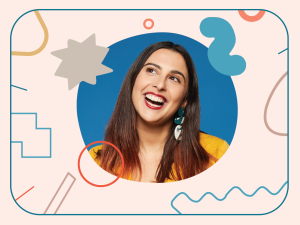
June 28, 2023
In the series finale of How’d You Get THAT Job?!, host Eleni Matheou unpacks what we’ve learned about how people thrive at work.

June 14, 2023
Nathan Friedman is the co-president and chief marketing officer of Understood.org. And he has dyslexia and ADHD. Learn how he got into the C-suite.
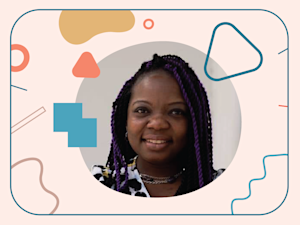
May 31, 2023
Dr. Loucresie Rupert is a child, adolescent, and adult psychiatrist with ADHD. She didn’t have an easy time getting her diagnosis as a Black woman.
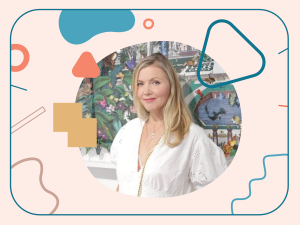
May 17, 2023
Kristjana Williams is a London-based Icelandic artist with dyslexia. She wasn’t diagnosed until she was 25, and now she has her own studio.

May 3, 2023
Aideé Chávez Frescas has ADHD, and is a senior social media manager at Understood. Her posts help end stigma and show others they’re not alone.
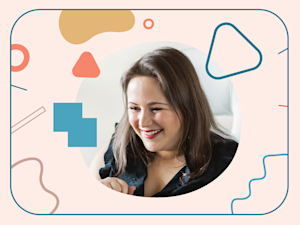
April 19, 2023
Alex Gilbert is a career coach with ADHD and dyslexia. After working in leadership development for years, she started her own coaching business.
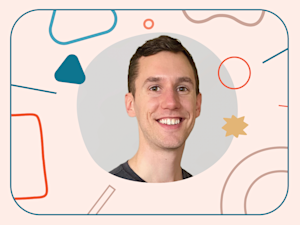
April 5, 2023
Dan Reis was diagnosed with ADHD during the pandemic. Now, he’s made it his mission to explore coping strategies to help him get his work done.
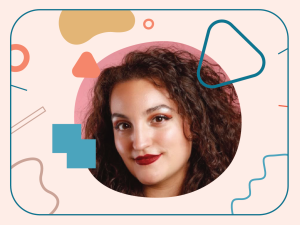
March 22, 2023
Rachel Basoco’s two jobs keep things interesting for her ADHD. She works full time at Fidelity, and part time at 11:11 Media, Paris Hilton’s company.
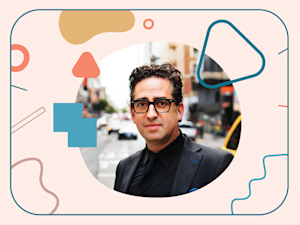
March 8, 2023
Gil Gershoni says that everything he does is dyslexic. He founded the branding firm Gershoni Creative and hosts the Dyslexic Design Thinking podcast.
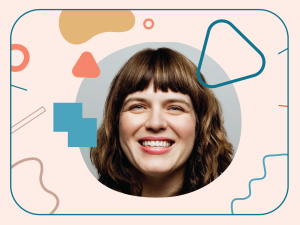
February 22, 2023
Claire Odom is a psychotherapist with ADHD. She’s also a disability inclusion consultant who has advice on navigating the workplace.
